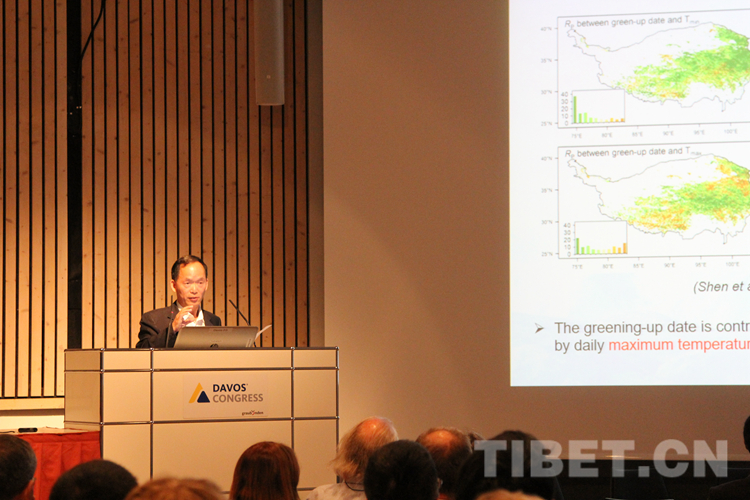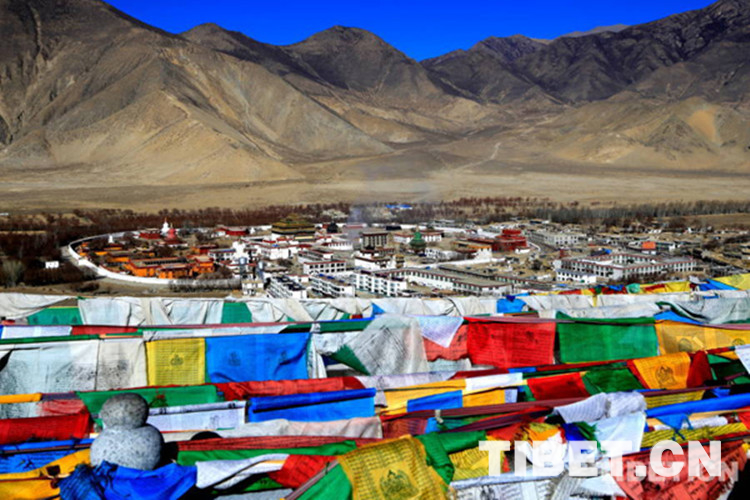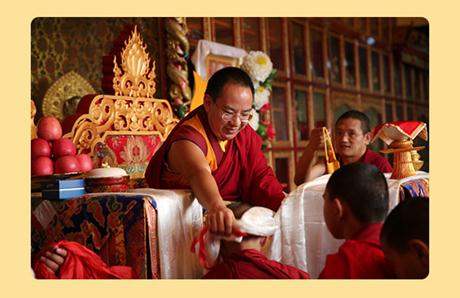Yak ink paintings go on display in Tibet
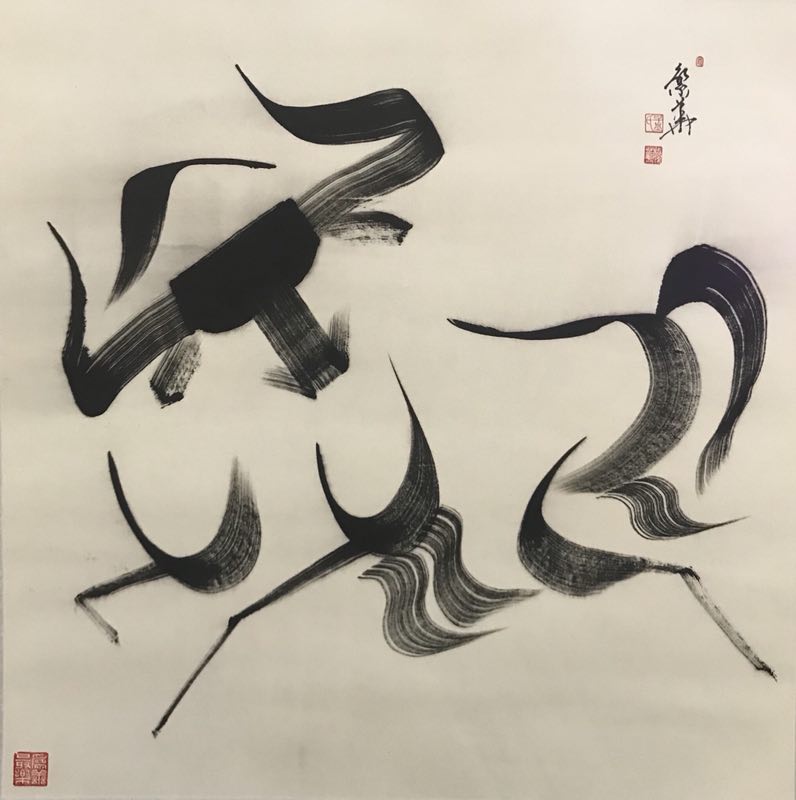
One of Meng Fanhua's yak ink-painting works in the exhibition hall in Lhasa on June 19, 2018. [Photo by Palden Nyima]
More than 40 paintings of yaks produced by Tibet's famous yak painter Meng Fanhua went on display Tuesday in Tibet’s Folk Art Museum in Lhasa.
Ink painting is China’s traditional art which began in the ancient Tang Dynasty (618-907) and prospered during the Song (960-1279) and Yuan (1271-1368) dynasties, but the art is fading today.
The seven-day event was hosted by the region’s cultural department and the Federation of Literary and Art Circle, and co-hosted by the region's folk art museum and the artists association.
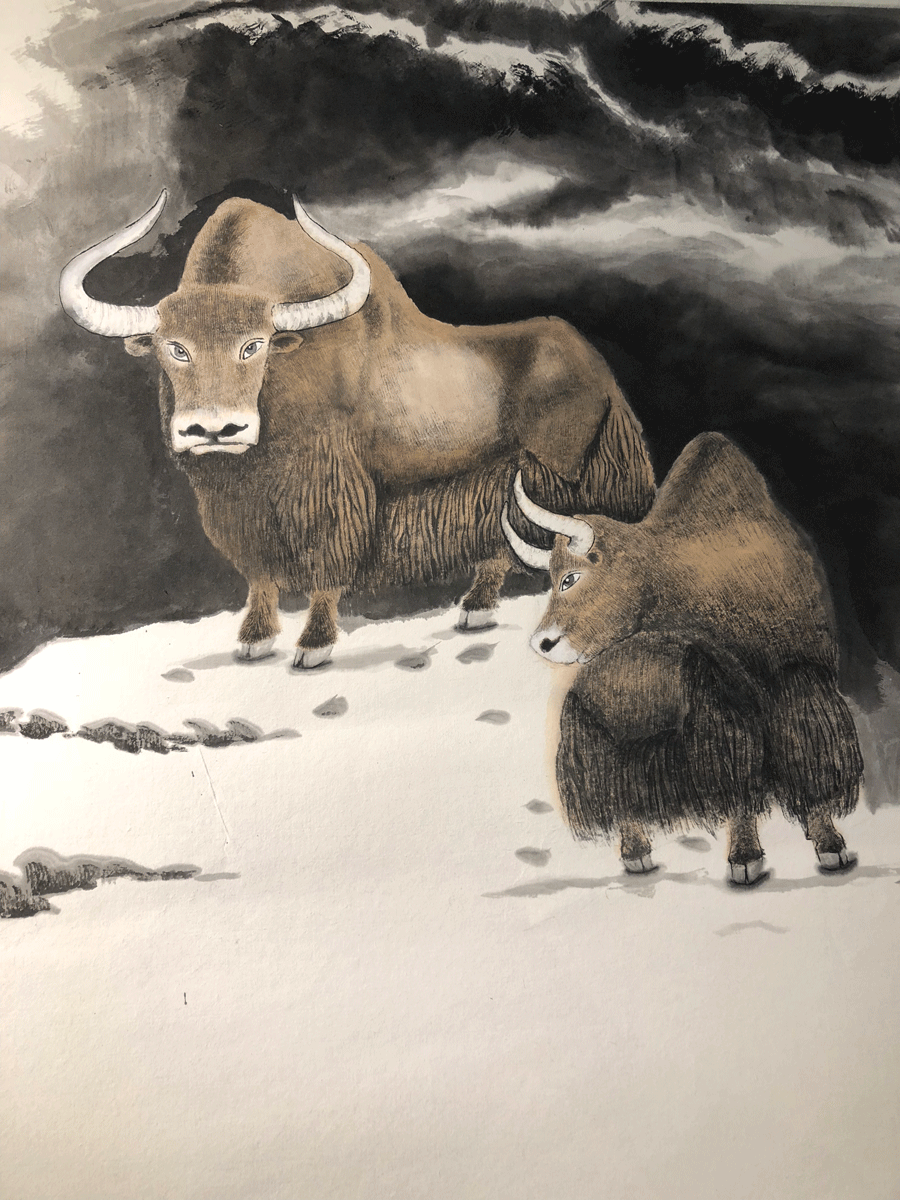
One of Meng Fanhua's yak ink-painting works in the exhibition hall in Lhasa on June 19, 2018. [Photo by Palden Nyima]
Born and raised in China's Qinghai province, Meng came to Tibet 16 years ago and started his yak painting life journey.
It is the first time in the region that Meng has exhibited so many works, which were produced within the last two years.
Ao Chao, the director of the Tibet Folk Art Museum, attended the opening ceremony and addressed the audience. He said Meng has been learning from different masters, but now his works are better than those of his masters.
"We can consider this exhibition as Meng's appreciation for the plateau where he lives and that he has benefited from over the years," said Ao.
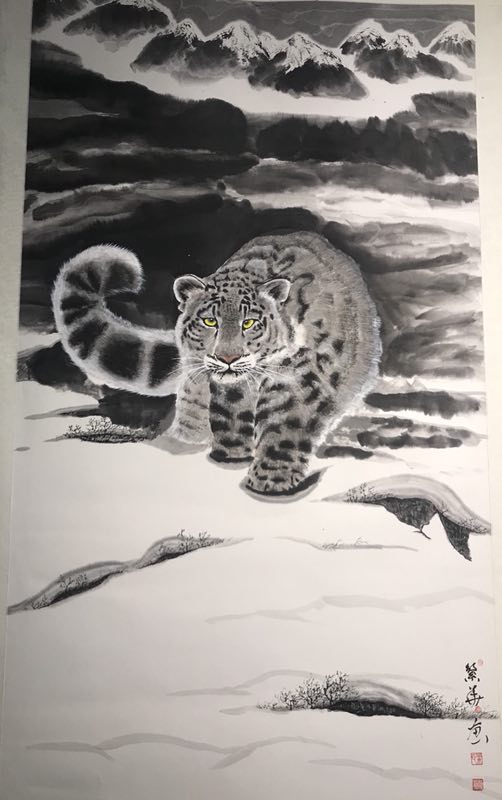
An ink-painting work with a snow leopard by Meng Fanhua in the exhibition hall in Lhasa on June 19, 2018. [Photo by Palden Nyima]
A species unique to the Tibetan plateau and listed as a first-class protected animal in China, the wild yak is also an outstanding element that can best represent Tibetan culture.
"I want to blend Tibet’s yak into China's traditional ink-painting art, and I want to reflect my understanding of the art with yaks," said Meng Fanhua.
"The yak represents Tibetan spirit -- it carries the Tibetan spirit of being tough and hardworking, and it also represents the profound Tibetan culture."
Your Comment
Name E-mailRelated News
-
-
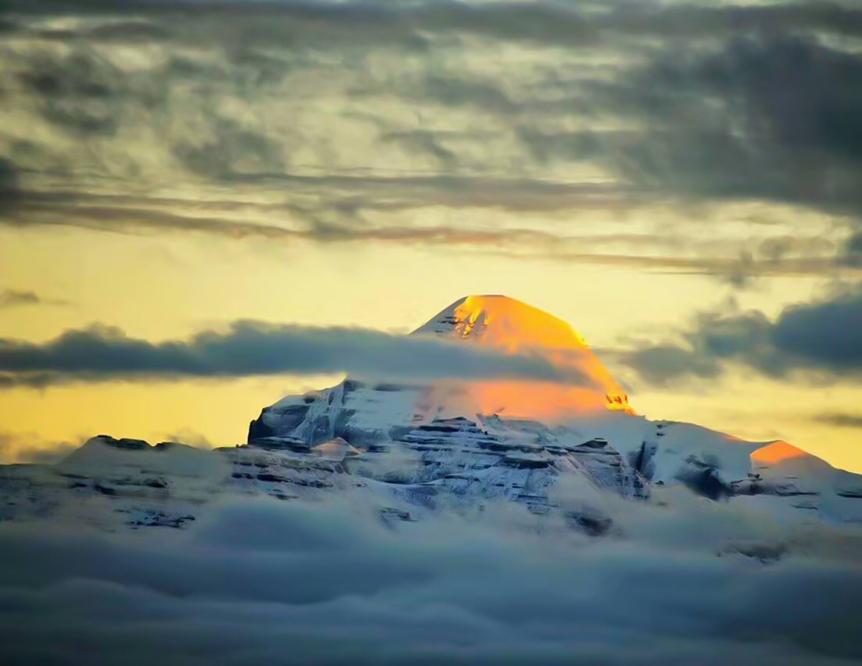
-
Ngari: happy life on yaks' back
When one thinks of livestock carrying cargo, the first thought is often poverty, yet in Gangsha Village people have used this way to overcome poverty and become prosperous.
-
-
-

-
Damxung yak meat with "identification card" sell in Lhasa
Yak meat from Damxung County has long been famous and has become a national protected geographical indication product.
-
-
-
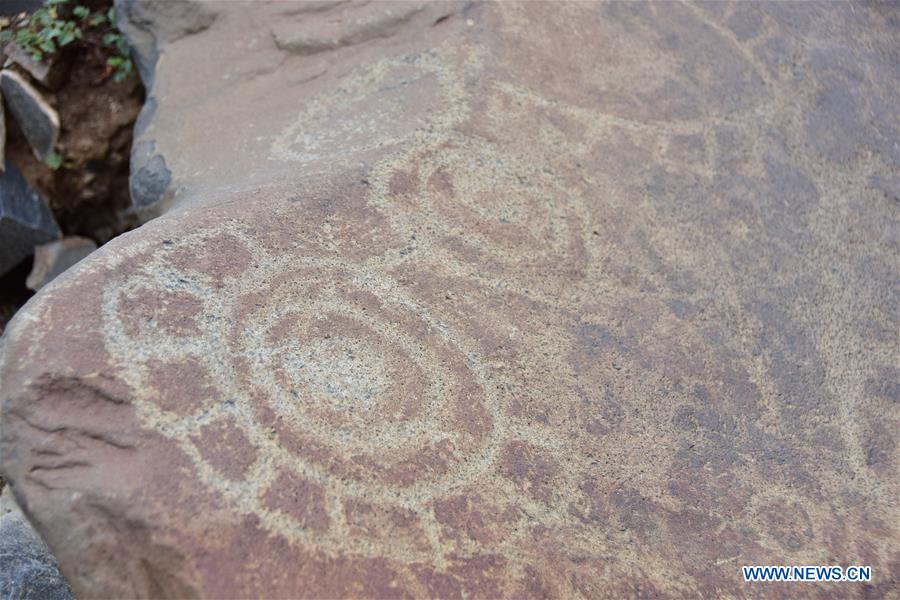
-
2,000-year-old rock paintings discovered in Tibetan region
Rock paintings over 2,000 years old, depicting animals, human figures, nature and constellations, have been found in a Tibetan prefecture in northwest China's Qinghai Province
-


